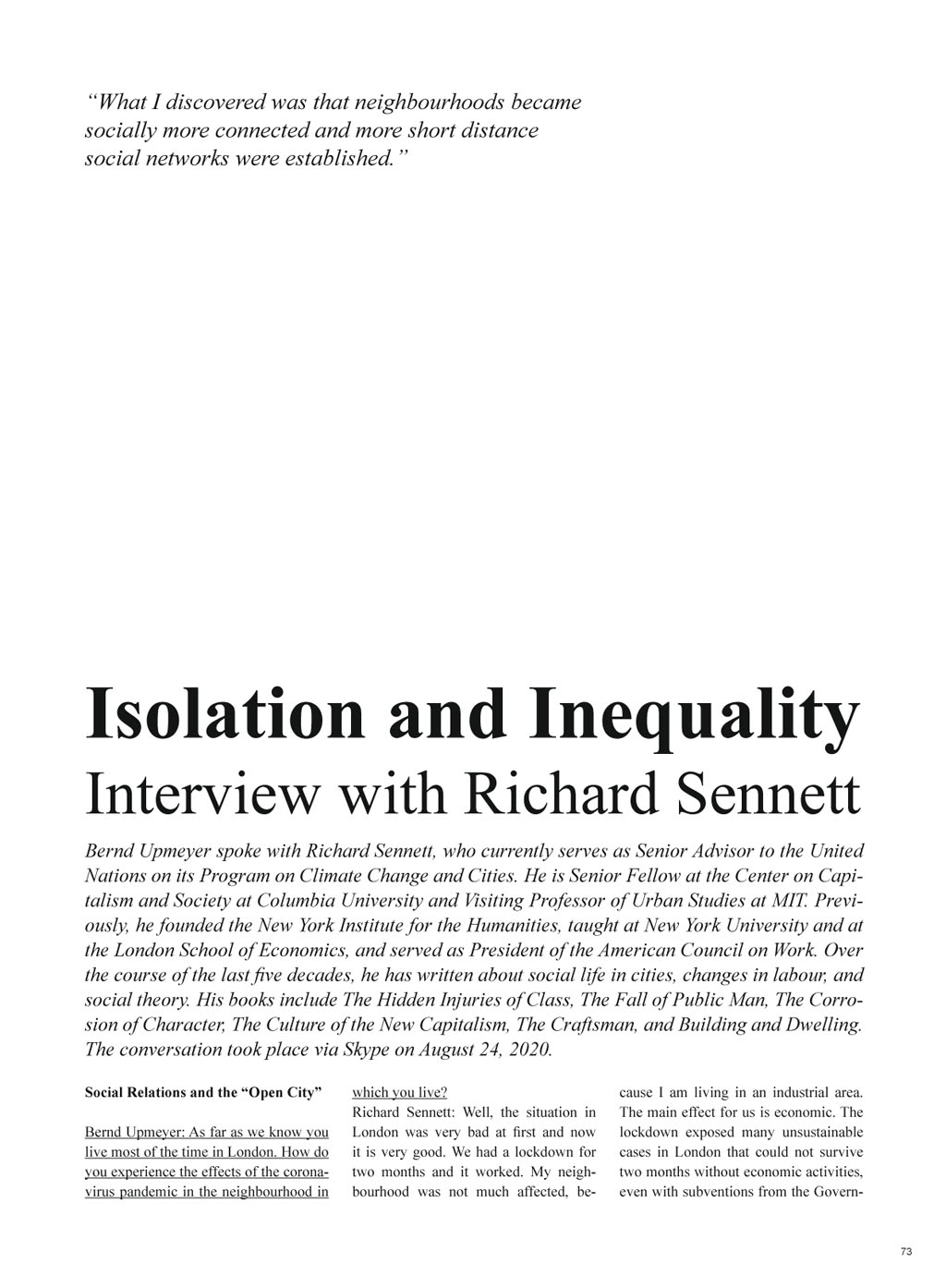24-08-20 // ISOLATION AND INEQUALITY – INTERVIEW WITH RICHARD SENNETT

“What I discovered was that neighbourhoods became socially more connected and more
short distance social networks were established.” (Richard Sennett)
Bernd Upmeyer spoke with Richard Sennett, who currently serves as Senior Advisor to the United Nations on its Program on Climate Change and Cities. He is Senior Fellow at the Center on Capitalism and Society at Columbia University and Visiting Professor of Urban Studies at MIT. Previously, he founded the New York Institute for the Humanities, taught at New York University and at the London School of Economics, and served as President of the American Council on Work. Over the course of the last five decades, he has written about social life in cities, changes in labour, and social theory. His books include The Hidden Injuries of Class, The Fall of Public Man, The Corrosion of Character, The Culture of the New Capitalism, The Craftsman, and Building and Dwelling. The conversation took place via Skype on August 24, 2020.
[…]
Bernd Upmeyer: Do you think that the pandemic will have an impact on the growth and the expansion of cities, especially big cities?
Richard Sennett: The big cities will not stop growing, but – like the “15-minute cities” – they should disaggregate concentration in order that several parts with five or six thousand inhabitants will be generated that make up the city together. This will not only help to deal better with the pandemic, but such a disaggregation of concentration, energies, pollution, etc. will help to battle climate change too.
BU: As an outlook on the future, where do you see – although many effects might remain temporary – permanent impacts of the pandemic on cities?
RS: Well, one permanent impact is economic, which becomes especially obvious in big cities, where there is such massive economic value. Another important thing related to covid-19 is the creation of inequality, especially between the working class and the middle class, as not everybody is able to work from home, but the middle class has more possibilities there and is thus less impacted. However, working from home has its own challenges too, since it is not possible to manage all tasks via Zoom. Online university classrooms have their limits, for example. But the coronavirus has really sped up our ways of working with technology, because it became necessary for banks, insurance companies, and many companies from the service and financial sector to figure out and decide what can be done effectively on a computer and with online communication tools. Because the tasks that can be done at home and in isolation have their limits and work best when they are just routine tasks. This is something that is happening today. I have a couple of students that are studying this and they figured out that the first people who are going back to their actual physical offices in London are those working in law corporations, because they need the interaction. So, I think that the long-term effects of the pandemic are not so much related to the number of people who died, but to the increase in social isolation and an increase in inequality…
… the complete interview was published in MONU #33 on the topic of Pandemic Urbanism on October 19, 2020.
Title: Isolation and Inequality
Project: Interview with Richard Sennett
Date: August 2020
Type: Commissioned interview
Topic: Pandemic Urbanism
Organizer: MONU
Status: Published
Publications: MONU #33, P. 73-77
Interviewer: Bernd Upmeyer